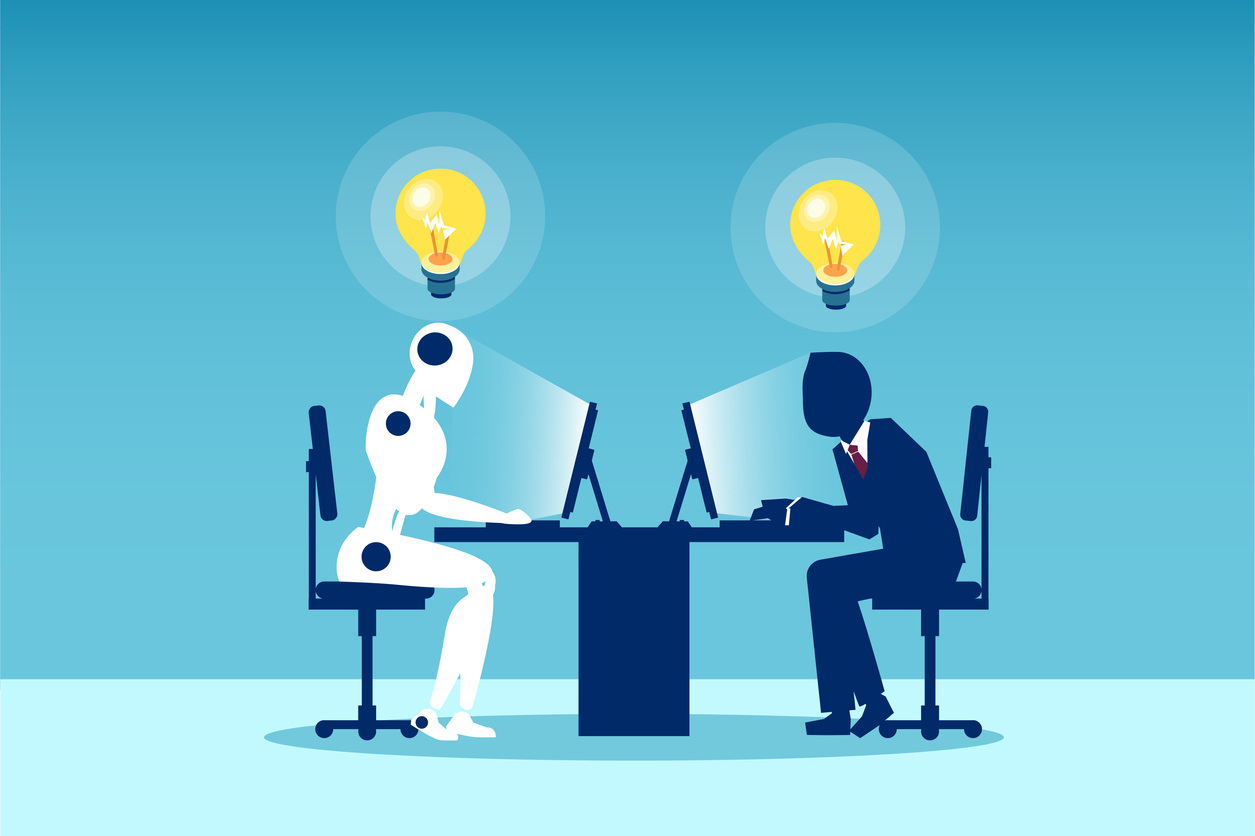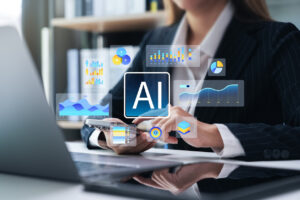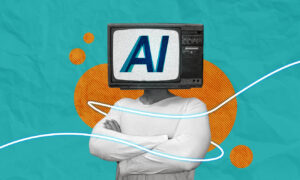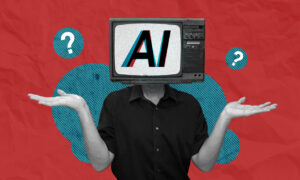5 advantages humans will always have over AI
With all due respect to our robot overlords.

AI is great. It’s a valuable tool. You need to learn about it. Here are some resources that can help.
But let’s not talk about AI today.
Let’s talk about people.
In fact, let’s talk about you.
Let’s talk about how you, a physical person with fingers to type and a big brain full of experiences, anecdotes and ideas, have an advantage over even the most advanced artificial intelligence.
And always will.
(If you’re an artificial intelligence being and you’re reading this, please leave, organic beings only.)
- Your curiosity.
AI can’t wonder. It can’t go down a rabbit hole of research on Wikipedia, bouncing from one idea to the next. It can’t go ask a question of a person in another department because they got a wild idea that just might be crazy enough to work.
Language learning models (LLMs) are force-fed information. They’re stuffed full of words strung together based on recognizable patterns to spit out answers to your queries. They can’t investigate outside of what they’ve been taught. But you, you have a great wide world full of books and people and experiences to pursue, explore and use to create.
2. Your weirdness.
To be sure, artificial intelligence is weird. It hallucinates. But it’s usually hallucinating because it can’t tell what’s true and what’s false. LLMs are basically guessing at what is the next most logical word in a sentence, meaning it lacks the wordplay flare that a person can have. Great writing happens when we fling together disparate words in a way that’s new, yet powerfully drives an idea home. A robot that’s just madlibbing lacks that ability to connect words in a beautifully weird way.
But you can.
3. Your history.
You have a past, but an AI doesn’t. It’s a blank slate onto which we project images of ourselves, but it’s still just a projection. You, however, are a person with a whole life behind you – and ahead of you. You’ve experienced things: failures and successes, struggles and stories. You have tales to tell and an understanding of how your audience laughs at a joke or winces in sympathy. You know how to ask an executive a question that elicits a real response, how to incorporate a worker’s concerns into your writing. AI is smart, but your lived experiences make you wise.
4. Your empathy.
This is our superpower. This right here. The ability to feel is what separates us, and always will, from artificial intelligence. We can infuse emotion into each message in a way that makes people feel supported or heard because they know we’ve experienced the same thing.
An AI can never experience anything. It can never know what it feels like to apologize, reach a goal or lose a job. So it can never authentically make anyone else feel heard and understood.
But you, with your wealth of life experiences, can.
5. Your flaws.
AI isn’t perfect – you’d know that if you’ve ever asked it to write to a certain word count. But there is a certain airbrushed smoothness to it, a curious blandness. It lacks specificity and texture.
You aren’t perfect either. You’ve probably got typos and inartful phrases in your copy. You didn’t get exactly the quote you wanted and you didn’t have time to edit things shorter. You did the best you could with the resources you had.
And what you created is perfectly imperfect.
When we talk about communicating with “authenticity,” this is what we mean. The realness that comes from humanity, the tiny flaws that show us there’s another human behind the words, with all their imperfections and beauty.
Maybe one day AI will evolve so it can emulate some of these hallmarks of humanity effectively. But it seems unlikely it can ever be as complex, contradictory, and wonderful as people are.
In the meantime, write on.
For more tips on leveling up your writing – with and without AI – join us for the Writing & Content Strategy Virtual Conference on Dec. 13! Allison Carter is editor-in-chief of PR Daily. Follow her on Twitter or LinkedIn.








When talking, talk about communications with “authenticity,” this is what they mean. The realness that comes from humanity, the tiny flaws that show there’s another human behind the words, with all their imperfections and beauty.
Maybe one day AI will evolve so it can emulate some of these hallmarks of humanity effectively. But it seems unlikely it can ever be as complex, contradictory, and wonderful as people are.